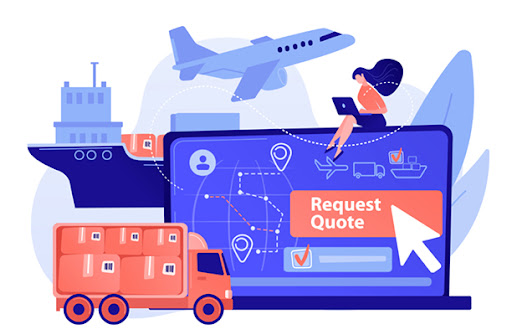
Navigating the Realm of Logistics Services in India: A Comprehensive Guide
In the vast and dynamic landscape of India's economy, logistics plays a pivotal role in ensuring the smooth flow of goods and services across the nation. With a rapidly growing economy and diverse geographical features, the demand for efficient logistics services has never been higher. From the bustling streets of metropolitan cities to the remote corners of rural India, logistics companies are at the forefront of delivering goods with precision and timeliness. In this article, we delve into the various types of logistics services in India that are essential for businesses and consumers alike.
1. Transportation Services:
Transportation forms the backbone of logistics operations in India. With a wide array of options including road, rail, air, and sea transport, logistics companies offer tailored solutions to meet diverse needs. Road transportation dominates the logistics sector due to its extensive reach and flexibility. Trucks, tempos, and trailers are commonly used for transporting goods across short and long distances. Rail transport is preferred for long-distance freight movement, especially for bulk commodities. Air cargo services are vital for time-sensitive shipments, offering rapid delivery options for perishable goods and high-value items. Sea freight is crucial for international trade, with major ports like Mumbai, Chennai, and Kolkata serving as vital hubs for container shipments.
2. Warehousing and Storage Services:
Efficient warehousing and storage facilities are essential for inventory management and seamless supply chain operations. Logistics companies in India offer a range of warehousing solutions including public warehouses, private warehouses, and cold storage facilities. Public warehouses provide shared storage space for multiple clients, offering cost-effective storage solutions. Private warehouses are dedicated facilities owned or leased by individual companies to meet their specific storage requirements. Cold storage facilities are equipped with temperature-controlled environments, catering to the storage needs of perishable goods such as fruits, vegetables, and pharmaceuticals.
3. Freight Forwarding Services:
Freight forwarding services play a crucial role in coordinating the transportation of goods from the point of origin to the final destination. These services involve a range of activities including documentation, customs clearance, consolidation, and coordination with various transport carriers. Freight forwarders act as intermediaries between shippers and carriers, ensuring smooth movement of cargo across different modes of transport. With expertise in international trade regulations and logistics management, freight forwarders facilitate seamless cross-border transportation and help businesses navigate complex customs procedures.
4. Third-Party Logistics (3PL) Services:
Third-party logistics providers offer comprehensive logistics solutions encompassing transportation, warehousing, distribution, and value-added services. These companies specialize in optimizing supply chain operations, allowing businesses to focus on their core competencies. 3PL services in India are witnessing rapid growth due to the increasing demand for outsourcing logistics functions. From order fulfillment to reverse logistics, 3PL providers offer a wide range of services tailored to the unique requirements of each client. By leveraging their expertise and infrastructure, 3PL companies enhance efficiency, reduce costs, and improve overall supply chain performance.
5. Last-Mile Delivery Services:
Last-mile delivery is a critical aspect of logistics, especially in urban areas with dense populations. It involves the final leg of the delivery process, ensuring that goods reach the end consumers in a timely and efficient manner. With the rise of e-commerce and online retail, last-mile delivery services have gained prominence in India. Logistics companies employ various strategies such as route optimization, real-time tracking, and crowdshipping to enhance last-mile delivery operations. Additionally, the use of technology such as GPS tracking and mobile apps enables customers to track their shipments and provide feedback in real-time, enhancing transparency and customer satisfaction.
6. E-Commerce Logistics Services:
The booming e-commerce industry in India has fueled the demand for specialized logistics services tailored to the unique requirements of online retail. E-commerce logistics providers offer a range of services including order fulfillment, inventory management, reverse logistics, and cash on delivery (COD) services. These companies operate sophisticated warehousing and distribution networks to ensure timely delivery of orders across the country. With the growing popularity of same-day and next-day delivery options, e-commerce logistics providers are continuously innovating to meet the evolving needs of online shoppers.
Conclusion:
In conclusion, the logistics services in India is witnessing rapid growth and transformation driven by technological advancements, evolving consumer preferences, and the rise of e-commerce. From transportation and warehousing to freight forwarding and last-mile delivery, a diverse range of logistics services is essential for businesses to streamline their supply chain operations and meet customer demands. By understanding the various types of logistics services available in India, businesses can make informed decisions and partner with the right service providers to optimize their logistics operations and drive growth in the competitive marketplace.